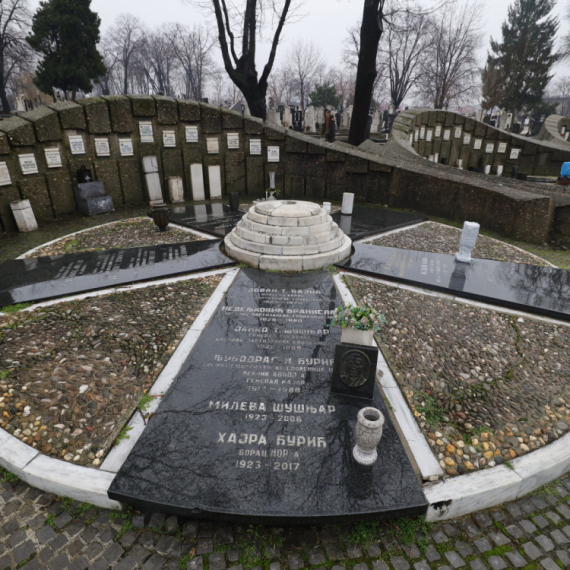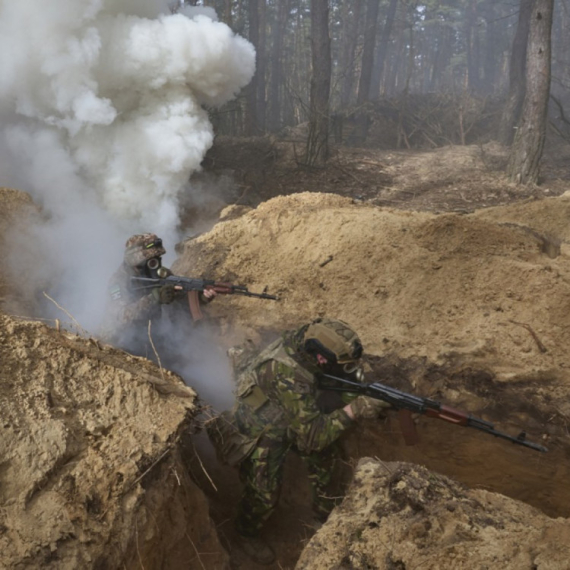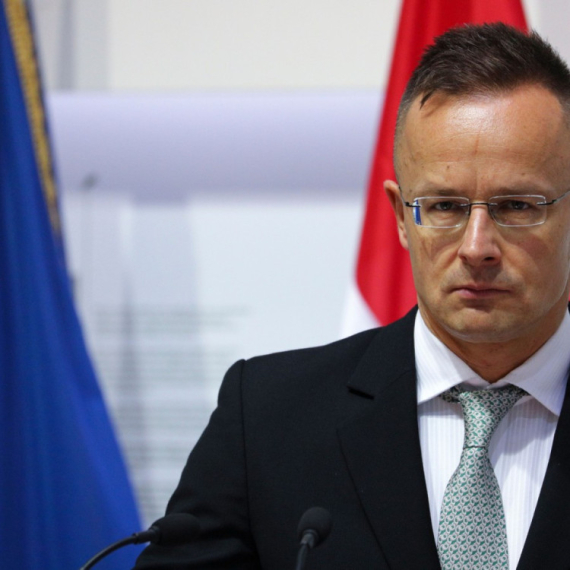Rockefeller: Serbia taking visible strides
Richard Rockefeller, chairman of the board of the Rockefeller Brother Fund, says the progress Serbia has made in the last eight years is visible.
Friday, 17.10.2008.
10:27

Richard Rockefeller, chairman of the board of the Rockefeller Brother Fund, says the progress Serbia has made in the last eight years is visible. Rockefeller was awarding diplomas to the first generation of students from the the New Policy School launched by the Youth Initiative for Human Rights NGO. Rockefeller: Serbia taking visible strides The Rockefeller Brothers Fund was created in 1940 in the U.S. as a charity assisting research and philanthropic activities. In Serbia, the foundation has a number of programs that help young and talented people. Speaking to B92, Rockefeller said that Washington’s official position on Serbia was too simplistic and chiefly negative. “What I’ve heard about Serbia is a long way from the spirit, intelligence and determination of the people I’ve met. Human capital, above all, is very constructive and, in some ways, we in the U.S. could learn something from them. I’d like to see a change in the U.S.’s position towards Serbia,“ said Rockefeller. Fund President Steven Heintz, who has been coming to Serbia regularly since 1994, said that he could see a lot of progress. According to him, the last elections in Serbia had shown that Serbia had reached a turning point. “We see consolidation of democratic forces, a new government that has made significant progress in the first 100 days, and we see that the international community has acknowledged this progress in different ways, including Fiat’s decision to invest EUR 1bn in Kragujevac,“ said Heintz. “For me that’s very encouraging, I see big progress and I’m optimistic, because I think Serbia is on a very good path,“ he added. Speaking of the current world financial crisis, Rockefeller said that this had been caused by George Bush’s political administration that relied too much on the free market, without any real balance between legal regulations and activities on the market. “I agree with the view that we still don’t know what the implications of this crisis will be. I think this crisis is very serious and there’s absolutely no doubt that this is the most serious economic crisis in the U.S. since the 1930s,“ he said. “Maybe no-one’s calling it a recession, but the implications are much more serious than of any other recession I’ve experienced. We’re yet to feel the full effect, as the crisis will reflect on the whole world, and then the U.S. again, and then affect this part of the world, which will affect donations to this region,“ surmised Rockefeller. As regards the Bush administration’s USD 700bn bailout plan, he said that the move smacked of socialism. Rockefeller believes that the political repercussions it will cause will be long-lasting and that the final outcome is still unpredictable, though it will affect not only the economy, but the social and political climate as a whole. Stephen Heintz, Bozidar Djelic (FoNet)
Rockefeller: Serbia taking visible strides
The Rockefeller Brothers Fund was created in 1940 in the U.S. as a charity assisting research and philanthropic activities. In Serbia, the foundation has a number of programs that help young and talented people.Speaking to B92, Rockefeller said that Washington’s official position on Serbia was too simplistic and chiefly negative.
“What I’ve heard about Serbia is a long way from the spirit, intelligence and determination of the people I’ve met. Human capital, above all, is very constructive and, in some ways, we in the U.S. could learn something from them. I’d like to see a change in the U.S.’s position towards Serbia,“ said Rockefeller.
Fund President Steven Heintz, who has been coming to Serbia regularly since 1994, said that he could see a lot of progress. According to him, the last elections in Serbia had shown that Serbia had reached a turning point.
“We see consolidation of democratic forces, a new government that has made significant progress in the first 100 days, and we see that the international community has acknowledged this progress in different ways, including Fiat’s decision to invest EUR 1bn in Kragujevac,“ said Heintz.
“For me that’s very encouraging, I see big progress and I’m optimistic, because I think Serbia is on a very good path,“ he added.
Speaking of the current world financial crisis, Rockefeller said that this had been caused by George Bush’s political administration that relied too much on the free market, without any real balance between legal regulations and activities on the market.
“I agree with the view that we still don’t know what the implications of this crisis will be. I think this crisis is very serious and there’s absolutely no doubt that this is the most serious economic crisis in the U.S. since the 1930s,“ he said.
“Maybe no-one’s calling it a recession, but the implications are much more serious than of any other recession I’ve experienced. We’re yet to feel the full effect, as the crisis will reflect on the whole world, and then the U.S. again, and then affect this part of the world, which will affect donations to this region,“ surmised Rockefeller.
As regards the Bush administration’s USD 700bn bailout plan, he said that the move smacked of socialism.
Rockefeller believes that the political repercussions it will cause will be long-lasting and that the final outcome is still unpredictable, though it will affect not only the economy, but the social and political climate as a whole.




























Komentari 5
Pogledaj komentare